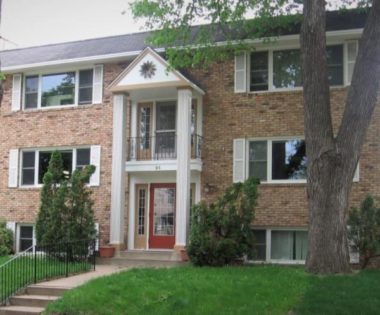For Preserving Affordability, 4D is a Win-Win
When a friend called Beth Barron last year and asked if she’d like to save $6,000 on her property tax bill, she signed up right away to become one of the first participants in the City of Minneapolis’s new “4d” Affordability Housing Incentive Program.
Even after 25 years as the owner and manager of an 11-unit apartment building near Lake of the Isles in Minneapolis, Beth never thought of herself as a landlord. Together with the residents of her building, she is creating a community. She keeps her building in good repair but hasn’t added any luxury touches, preferring to keep rents reasonable and her residents stable. As a result, the building is an example of what’s commonly known as “naturally-occurring affordable housing,” offering moderate rents without any government assistance.
Beth believes that the 4d program is a win-win for rental property owners willing to try something new. The savings on her tax bill have come through as promised. Even better, she has been working with the City’s program partners to assess energy efficiency in her building, and may qualify for rebates and incentives that will pay for the majority of the cost of a new highly-efficient boiler and water heater.
In return for the reduction in her tax bill, Beth committed to keeping rents reasonable (no more than $1062 for a one-bedroom unit in 2019), which was already her plan, and to rent future available units to residents whose income does not exceed 60% of the Area Median Income (currently $45,300 for a household of two), over the next ten years.
The program was created in 2018 to help preserve naturally occurring affordable housing (NOAH). Owners of rental housing who enroll apartments in the program receive a 40% reduction in property taxes in exchange for making a 10-year commitment to keeping rents affordable.
The City of Minneapolis is accepting new applications for the 4d program through February 12, 2019; visit the program website to learn more.
FHFund has compiled a list of Frequently Asked Questions from potential participants in the program. (While the information in this document is intended to be as accurate as possible, the City of Minneapolis and the State of Minnesota are ultimately responsible for interpreting program rules and relevant legislation.)
